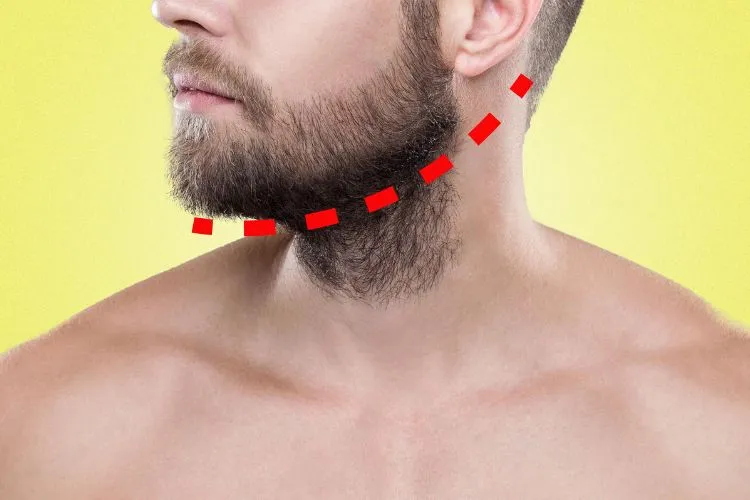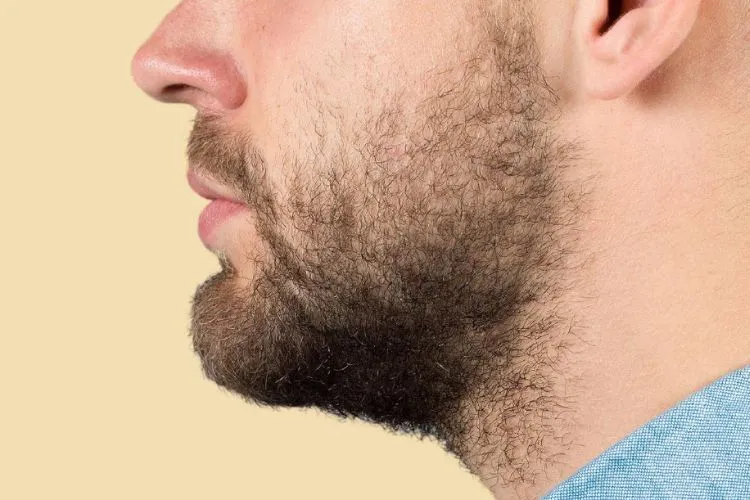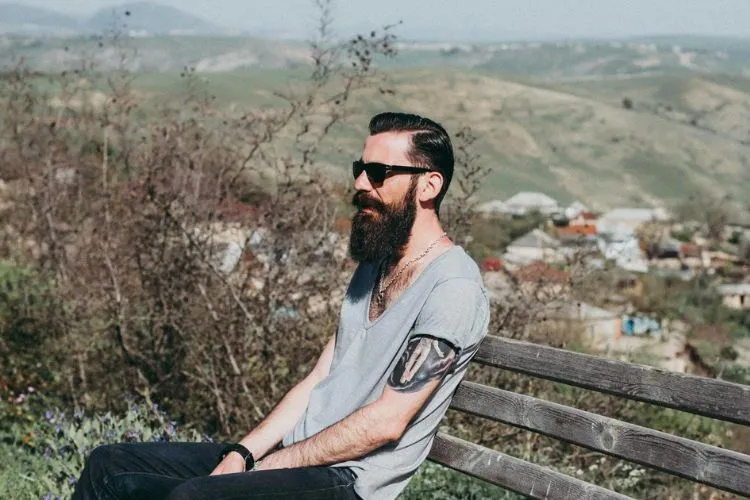The term “neckbeard” often conjures images of unkempt facial hair that sprawls beyond the confines of one’s chin and jawline, meandering down the neck.
This distinctive style, or lack thereof, has woven itself into the fabric of grooming debates, leaving many to ponder its place in the hierarchy of attractiveness.
In this discourse, we will delve into the multifaceted perceptions of the neckbeard, exploring its historical roots, societal impact, and the subjective nature of beauty.

Are neckbeards attractive?
Whether neckbeards are attractive is highly subjective and varies greatly depending on individual preferences and cultural norms. Some people may find neckbeards attractive, associating them with uniqueness or a relaxed attitude towards grooming.
Others may view them as unappealing due to perceived lack of hygiene or professionalism. Ultimately, the attractiveness of neckbeards is determined by personal taste and societal standards. It’s important for individuals to choose styles that make them feel confident and comfortable, regardless of trends.
The Origin and Perception of Neckbeards
Neckbeards are not a modern phenomenon. Historically, facial hair styles have fluctuated with the times, influenced by cultural norms, religious beliefs, and societal status.
However, the specific term and concept of the “neckbeard” have evolved more recently, often laden with stereotypes and cultural baggage. In contemporary contexts, neckbeards have been associated with various subcultures and are often portrayed with a blend of humor and disdain in media.
The perception of neckbeards can significantly differ across communities and generations. While some view them as a symbol of rebellion against traditional grooming standards, others see them as a hallmark of neglect.
This divergence in opinion underscores the complex relationship between individual identity and societal expectations.
Societal Views on Neckbeards
Attractiveness, particularly concerning facial hair, is highly subjective and influenced by myriad factors, including cultural background, personal preference, and societal trends. Studies have shown that while some find facial hair, including neckbeards, to signify maturity and masculinity, others may perceive them as unclean or unprofessional.

This polarity is further complicated by regional and cultural differences. In some cultures, a full beard, extending to the neck, is a sign of wisdom and respect. In contrast, in other societies, clean-shaven faces are deemed more professional or attractive. These contrasting views highlight the subjective nature of beauty and grooming.
The Psychology of Attraction and Facial Hair
Psychological theories suggest that certain facial hair styles can impact perceptions of attractiveness, dominance, and trustworthiness. While a well-groomed beard may be seen as a sign of maturity and confidence, an unkempt neckbeard might convey the opposite.
Personal grooming plays a crucial role in these perceptions, influencing how individuals are viewed in various contexts, from social interactions to professional environments.
The decision to grow a neckbeard, then, can reflect more than just a personal style choice; it can signal an individual’s values, personality, and how they wish to be perceived by others.
However, the key to harnessing the power of any facial hair lies in understanding the balance between personal expression and societal acceptance.
Personal Grooming and the Neckbeard
For those who choose to sport a neckbeard, maintenance is crucial. Proper grooming can transform a potentially unruly mass of hair into a statement of individual style. This includes regular washing, trimming, and shaping to ensure the neckbeard complements the wearer’s facial structure and personal aesthetic.
Choosing to maintain a neckbeard also involves considering the balance between facial hair and overall appearance. It’s not merely about letting hair grow wild; it’s about crafting an image that aligns with one’s sense of self while still adhering to the standards of cleanliness and grooming that society values.
Pros and Cons of Having a Neckbeard
The neckbeard, like any style choice, comes with its advantages and disadvantages. On one hand, it can serve as a canvas for self-expression or a shield to cover imperfections. On the other hand, it can attract negative stereotypes or require significant upkeep.
One must weigh these factors carefully. A neckbeard can express individuality and defiance of conventional norms, but it can also be perceived as a sign of poor hygiene or a lack of professionalism.
The challenge lies in navigating these perceptions and finding a style that feels true to one’s identity while being mindful of the potential social and professional implications.
Real-Life Opinions and Experiences
The true impact of a neckbeard can best be understood through the stories of those who wear them. Interviews and anecdotes reveal a spectrum of experiences, from positive affirmations of identity to challenges in dating and professional settings.
These personal narratives underscore the diverse implications of sporting a neckbeard and highlight the importance of context—both social and personal.

For many, a neckbeard is more than just facial hair; it’s a part of who they are. Yet, for others, it may be a phase or an experiment in style. Understanding these varied perspectives provides valuable insights into the complex dynamics of attractiveness and grooming.
Pro Tips
Before embarking on the neckbeard journey, consider the following: Does this style suit my face shape and lifestyle? Am I prepared for the maintenance it requires?
How will it align with my personal and professional life? Armed with the right tools and mindset, anyone can navigate the complex waters of grooming and style.
In the end, whether neckbeards are deemed attractive is a matter of personal taste and societal context. But one thing remains clear: the importance of grooming, hygiene, and self-expression in crafting one’s image.
So, to those pondering whether to grow a neckbeard: ponder not just the hair on your neck, but the message you wish to convey to the world.
You may also read: Why Are Tomboys Attractive?
Frequently Asked Questions (FAQs)
Is a neckbeard suitable for all face shapes?
Not necessarily. Like any facial hair style, neckbeards complement certain face shapes better than others. Consider consulting with a grooming professional to find the best style for your face.
How can I grow a neckbeard if my facial hair is patchy?
Patience is key. Allow your hair to grow out for a few weeks, then evaluate the coverage. There are also products and techniques that can help stimulate growth and give the appearance of a fuller beard.
What are the best grooming practices for maintaining a neckbeard?
Regular washing, conditioning, and trimming are essential. Use the right tools, like beard oils and trimmers, to keep your neckbeard looking neat and healthy.
Can a neckbeard be professional?
Yes, but it depends on your workplace. Some environments are more accepting of facial hair than others. Keep your neckbeard well-groomed and consider the norms of your professional setting.
How do I know if a neckbeard is right for me?
Consider your lifestyle, profession, and personal style. It’s also important to feel comfortable and confident with your appearance. If in doubt, you can always grow it out and shave it off if it doesn’t feel right.
Conclusion :
In conclusion, the question of whether neckbeards are attractive is not one with a universal answer. Beauty, as they say, is in the eye of the beholder, and the neckbeard is no exception. It stands as a testament to personal preference, societal norms, and the ever-evolving landscape of style.
For those considering a neckbeard, or any style for that matter, the key is confidence. Embrace your choice with pride, but also be mindful of the maintenance and social perceptions associated with it. After all, attractiveness extends beyond facial hair; it encompasses the entire persona, from grooming habits to personal confidence.
